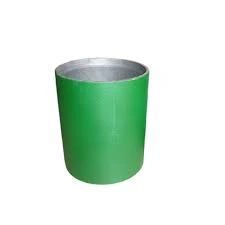- Afrikaans
- Albanian
- Amharic
- Arabic
- Armenian
- Azerbaijani
- Basque
- Belarusian
- Bengali
- Bosnian
- Bulgarian
- Catalan
- Cebuano
- Corsican
- Croatian
- Czech
- Danish
- Dutch
- English
- Esperanto
- Estonian
- Finnish
- French
- Frisian
- Galician
- Georgian
- German
- Greek
- Gujarati
- Haitian Creole
- hausa
- hawaiian
- Hebrew
- Hindi
- Miao
- Hungarian
- Icelandic
- igbo
- Indonesian
- irish
- Italian
- Japanese
- Javanese
- Kannada
- kazakh
- Khmer
- Rwandese
- Korean
- Kurdish
- Kyrgyz
- Lao
- Latin
- Latvian
- Lithuanian
- Luxembourgish
- Macedonian
- Malgashi
- Malay
- Malayalam
- Maltese
- Maori
- Marathi
- Mongolian
- Myanmar
- Nepali
- Norwegian
- Norwegian
- Occitan
- Pashto
- Persian
- Polish
- Portuguese
- Punjabi
- Romanian
- Russian
- Samoan
- Scottish Gaelic
- Serbian
- Sesotho
- Shona
- Sindhi
- Sinhala
- Slovak
- Slovenian
- Somali
- Spanish
- Sundanese
- Swahili
- Swedish
- Tagalog
- Tajik
- Tamil
- Tatar
- Telugu
- Thai
- Turkish
- Turkmen
- Ukrainian
- Urdu
- Uighur
- Uzbek
- Vietnamese
- Welsh
- Bantu
- Yiddish
- Yoruba
- Zulu
Understanding Bull Plugs and Their Uses in Various Applications
Understanding Bull Plugs Features and Applications
In the world of engineering and fluid management, a bull plug is an essential component that often goes unnoticed. Yet, its significance cannot be understated. A bull plug is a type of pipe fitting designed to seal the ends of piping systems. It is generally characterized by its solid construction and a variety of sizes that fit standard pipe dimensions. This article delves into the features, uses, and advantages of bull plugs in various applications.
Key Features of Bull Plugs
Bull plugs are typically made from durable materials such as stainless steel, brass, plastic, or even rubber, depending on the application they are intended for. One of the defining characteristics of a bull plug is its design, which includes a threaded end to ensure a secure fit. This design enables bull plugs to create airtight seals, preventing any fluid leakage that could lead to inefficiencies or safety hazards.
Sizes vary to accommodate different piping systems, and manufacturers produce bull plugs in both standard and custom dimensions. The versatility in size ensures compatibility with a wide range of pipes, making bull plugs suitable for multiple industrial settings.
Applications of Bull Plugs
Bull plugs are employed in a myriad of industries, including
1. Oil and Gas In the oil and gas sector, bull plugs are used to seal off pipes during maintenance or when a section of the pipeline is not in use. This ensures that there is no leakage of hazardous materials, thereby promoting safety.
2. Water Supply Systems In municipal water systems, bull plugs play a vital role in isolating sections of a pipeline for repairs or upgrades. By effectively sealing ends, they help in minimizing water loss and ensuring the system operates efficiently.
3. Chemical Processing The chemical industry often deals with corrosive substances, making the choice of right materials crucial. Bull plugs made from corrosion-resistant materials are used here to prevent leaks and protect both equipment and personnel.
what is bull plug

4. HVAC Systems In heating, ventilation, and air conditioning (HVAC) systems, bull plugs can be used to seal off unused openings or for pressure testing purposes. This ensures optimal performance of the climate control systems.
5. Manufacturing In various manufacturing processes, bull plugs can seal hydraulic or pneumatic systems, ensuring that operations proceed without interruptions related to leaks.
Advantages of Using Bull Plugs
The adoption of bull plugs in various applications offers numerous advantages. Firstly, the robust construction materials provide enhanced durability and resistance to pressure and temperature fluctuations. This translates into longer service life and reduced maintenance costs over time.
Secondly, bull plugs facilitate greater operational safety. By preventing leaks, they reduce the risk of accidents caused by hazardous material spills or pressure loss. This is especially critical in industries like oil and gas, where any leakage can have catastrophic effects.
Moreover, the ease of installation and removal of bull plugs contributes to operational efficiency. Workers can quickly install or replace bull plugs during routine maintenance, minimizing downtime.
Finally, their cost-effectiveness cannot be overlooked. Bull plugs represent a low-cost solution for sealing systems, ensuring that investments in complex piping networks remain protected.
Conclusion
In summary, bull plugs, while often overlooked, play a pivotal role in ensuring the integrity and efficiency of various fluid and gas handling systems. Their strong construction, versatility, and ease of use make them indispensable across multiple industries. Whether sealing off a section of pipe, maintaining safety standards, or preserving efficiency, bull plugs stand out as a reliable solution in industrial applications. A small component in the grand schema of engineering, yet one whose importance is vital for seamless operations. As industries continue to evolve, the relevance of bull plugs is bound to endure, adapting to meet future challenges in fluid and gas management.
-
Tubing Pup Joints: Essential Components for Oil and Gas OperationsNewsJul.10,2025
-
Pup Joints: Essential Components for Reliable Drilling OperationsNewsJul.10,2025
-
Pipe Couplings: Connecting Your World EfficientlyNewsJul.10,2025
-
Mastering Oilfield Operations with Quality Tubing and CasingNewsJul.10,2025
-
High-Quality Casing Couplings for Every NeedNewsJul.10,2025
-
Boost Your Drilling Efficiency with Premium Crossover Tools & Seating NipplesNewsJul.10,2025







